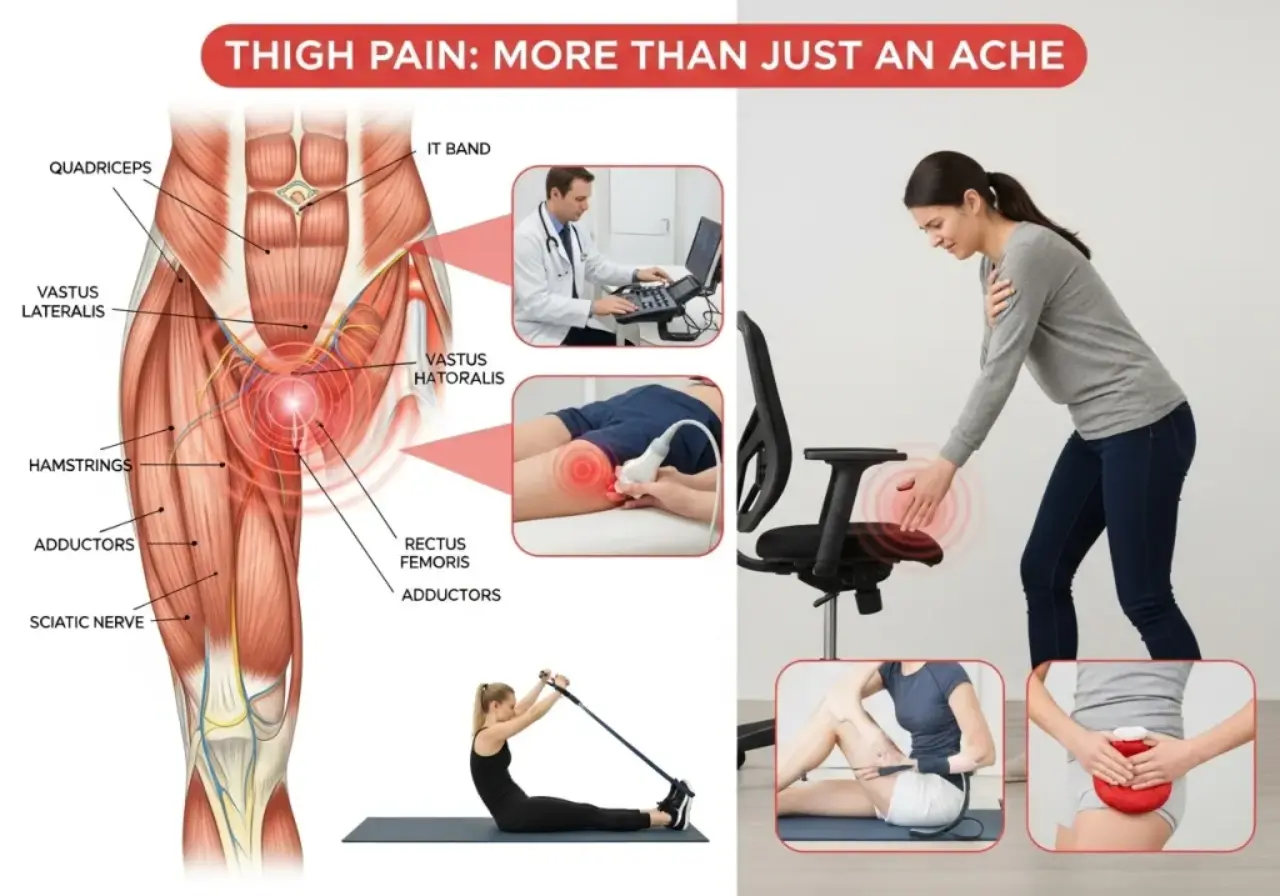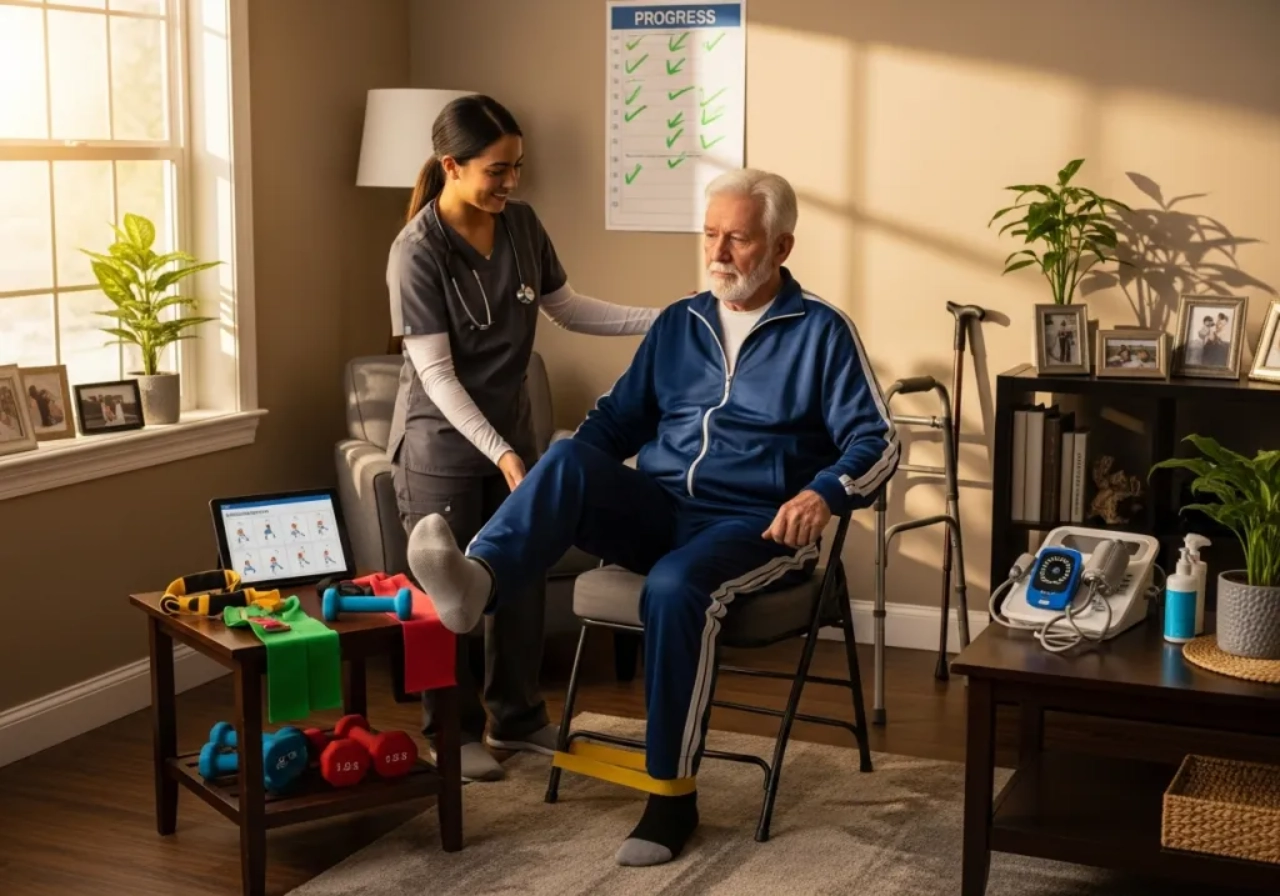
What is Neurological Physiotherapy?
Neurological physiotherapy also called as neuro physiotherapy, is a unique type of physiotherapy that helps people with neurological conditions. These can stem from trauma or illness affecting the nervous system, which includes the brain, spinal cord, and nervous system. Neuro physiotherapy has an impact on patients’ lives by boosting their movement, strength, co-ordination, functional abilities, and general well-being. This specialised input brings big changes giving hope and better results to those struggling with difficulties in mobility, strength, and function.
The Importance of Specialised Care:
Neurological conditions have a huge impact on a person’s ability to do everyday tasks, stay independent, and live a good life. Conditions like stroke, multiple sclerosis, Parkinson’s disease, and brain injuries can lead to big physical, mental, and emotional challenges. Specialised care through neurological rehabilitation is key to manage these conditions. Neuro-physiotherapists are well equipped to deal with the complex neurological conditions and create specific rehabilitation plans to help individuals in getting better. The purpose of therapy is not only on physical recovery but also tries to boost mental and emotional health.
Neurological Physiotherapy: Assessment and Diagnosis

Past medical history information
Comprehensive medical history of the patient, including past illness, treatment, and procedures to determine the proper therapy.

Physical assessment
Determining the strength of muscles, flexibility, coordination and motion range of the joints to detect eventual concealed physical difficulties. This is done through standardised tests for specific conditions

Functional Examination
Understanding the patient's existing condition considering the actions of daily living like personal care, grooming, meals, shopping, toileting etc, in order to more clearly reveal the difficulties caused as a result of the neurological condition
Neuro Physiotherapy Treatment process
Our Neuro Physiotherapy programmes are designed to address specific challenges associated with neurological conditions. We use various interventions like:

Manual Therapy
The purpose is to reduce discomfort, increase range of motion as well as promote blood circulation. This is achieved through techniques such as joint mobilisation and soft tissue manipulation.

Therapeutic Exercises
Personalised exercise plan that aims to increase the flexibility, endurance, and strength of an individual. The exercise plan is carefully monitored and adapted according to the progress of an individual.

Balance and Coordination
The Physiotherapy input will include specific training to avert falls and improve stability. Physiotherapists may use stability balls, balance boards, and outdoor activities such as walking on an uneven surface.

Functional Electrical Stimulation (FES)
Electrical currents are used to assist in improving the muscle strength and suppleness to prevent spasticity and contractures. FES input in early stroke has strong evidence in improving the muscle activity.

Gait Training
Mobility progressions and training are inherent parts of neuro-rehabilitation. Neuro-physiotherapists work on improving the gait pattern and reducing the risk of developing compensatory techniques. They also provide advice and training on use of appropriate mobility aids.
Rehabilitation Programmes

Rehabilitation in stroke
Exercises and activities that enable people regain their movement and function after a stroke. This involves the development of motor skills, retraining sensory functions, as well as improving speech and swallowing.

Management of Parkinson’s disease
Mobility improvement, stiffness reduction and coordination are some of the challenges faced by persons suffering from this condition. Various exercise programmes like Parkinsons warrior programme are specifically designed to improve mobility, co-ordination and strength.

Physiotherapy in Multiple Sclerosis
Physiotherapy input is designed to address fatigue issues, reduce muscle tightness, and enhance mobility. The Physiotherapist is able to incorporate energy conservation strategies, muscle strengthening exercises, and coordination improvement methods in rehabilitation programme.

Spinal Cord Injury Rehabilitation
Neuro-Physiotherapy input in spinal cord injuries focusses on progressing mobility, enhancing functional abilities and improving the quality of life. This is achieved by developing a personalised rehabilitation plan which includes exercises to strengthen muscles, improve balance and maintain range of motion. The special emphasis is also on preventing respiratory complications and providing optimum pain management. The physiotherapist is able to train an individual about various techniques to regain independence and build confidence about adapting to new challenges.

Traumatic Brain Injury Recovery
Neuro-Physiotherapy input in TBI has a central role in recovery as well as improving function. The focus of Physiotherapy input is to improve co-ordination, motor skills and balance. This is done by providing exercises targeted to stimulate neuroplasticity of the brain. The Physiotherapists develop rehab plan which consist of gait training and progression, strengthening exercises and techniques to improve fine motor skills. The individuals benefit greatly from specialised input and it improves their quality of life as well as transferring the skills in to activities of daily living.

Why Personalised Programs Matter
Personalised rehabilitation plans are essential because individual needs vary, and one size doesn’t fit all. A customised approach ensures that the therapy input is targeted towards the specific issues identified and goals set up by the individual that are important to them. The goal -orientated approach ensures that individual gets quality treatment which helps in optimum recovery.
Why Choose Us for Neurological Physiotherapy?

Track Record
Our Physiotherapists are fully qualified and have a wealth of experience in Neurological Conditions. All our Physios are HCPC and CSP registered and have been working with NHS and well as with UKhomephysio Ltd. For several years. Our five-star rating shows our commitment to patient care at every level.

Qualifications of Our Team
Fully Qualified: We have fully qualified, highly experienced, HCPC and CSP registered Physiotherapists in our team who have developed expertise in neuro-physiotherapy through experience as well as appropriate post-graduate training.
Continuing professional development: We make ongoing professional development a top priority to ensure that our team adopts evidence based approach based on latest research and development.

Personalised Care
We believe individually tailored treatment plans work best to ensure a custom approach that considers their specific condition, aims, and likes. This personal touch helps to provide the most effective treatment with positive outcome.

Patient-Centred Approach
Goal Setting: We work with the patients and make a shared decisions on goal settings. Our Physiotherapists develop an individualised treatment plan based on your own abilities to progress and desires.
Progress Monitoring: Checking progress often and modifying the treatment plan to ensure maximum improvement.
Patient Education: Our team also takes an effort to train the individuals, families and carers about transfer techniques as well as strategies for self-management to give them more control.

Holistic Approach
We adopt a holistic approach in which all the aspects are taken into consideration the physical, cognitive as well as mental aspects in recovery. The individual is seen as a whole and at the centre of the rehabilitation planning.

Collaborative Care
Multidisciplinary Teams: We work as part of a multi-disciplinary team to provide high quality treatment.
Family Involvement: We involve family members and carers in the rehabilitation process to give support and help in recovery.
Community Resources: We link patients with community resources and support groups to help them in their rehabilitation journey.
FAQs
How can neuro physiotherapy help after a stroke?
What are the benefits of neuro physiotherapy for Parkinson's disease?
How soon after a neurological injury should neuro physiotherapy start?
What techniques are used in neuro physiotherapy sessions?
Can neuro physiotherapy improve balance and coordination?
How long does a neuro physiotherapy session typically last?
Is neuro physiotherapy suitable for children with neurological conditions?
Read More Form Experts.

Thigh Pain: More Than Just an Ache
Thigh pain can start as a dull ache after a long walk or a sharp twinge when you stand up. It’s easy to dismiss it as a simple muscle strain, but when it persists, it can have a detrimental effect on your mobility as well as activities of daily living. The first step …….

Physiotherapy Role in Post-Hospital Discharge: A Complete Recovery Guide
Hospital admission can be a stressful experience for an individual who is not unwell as well as the families and carers. The road to recovery post hospital admission can be long and result in loss of functional abilities as well as mobility in the absence of appropriate therapy input. …..
Physiotherapy for Lower Back Pain
Lower back pain is one of the most common musculoskeletal issues which affects young as well as elderly individuals. The main cause can be poor



